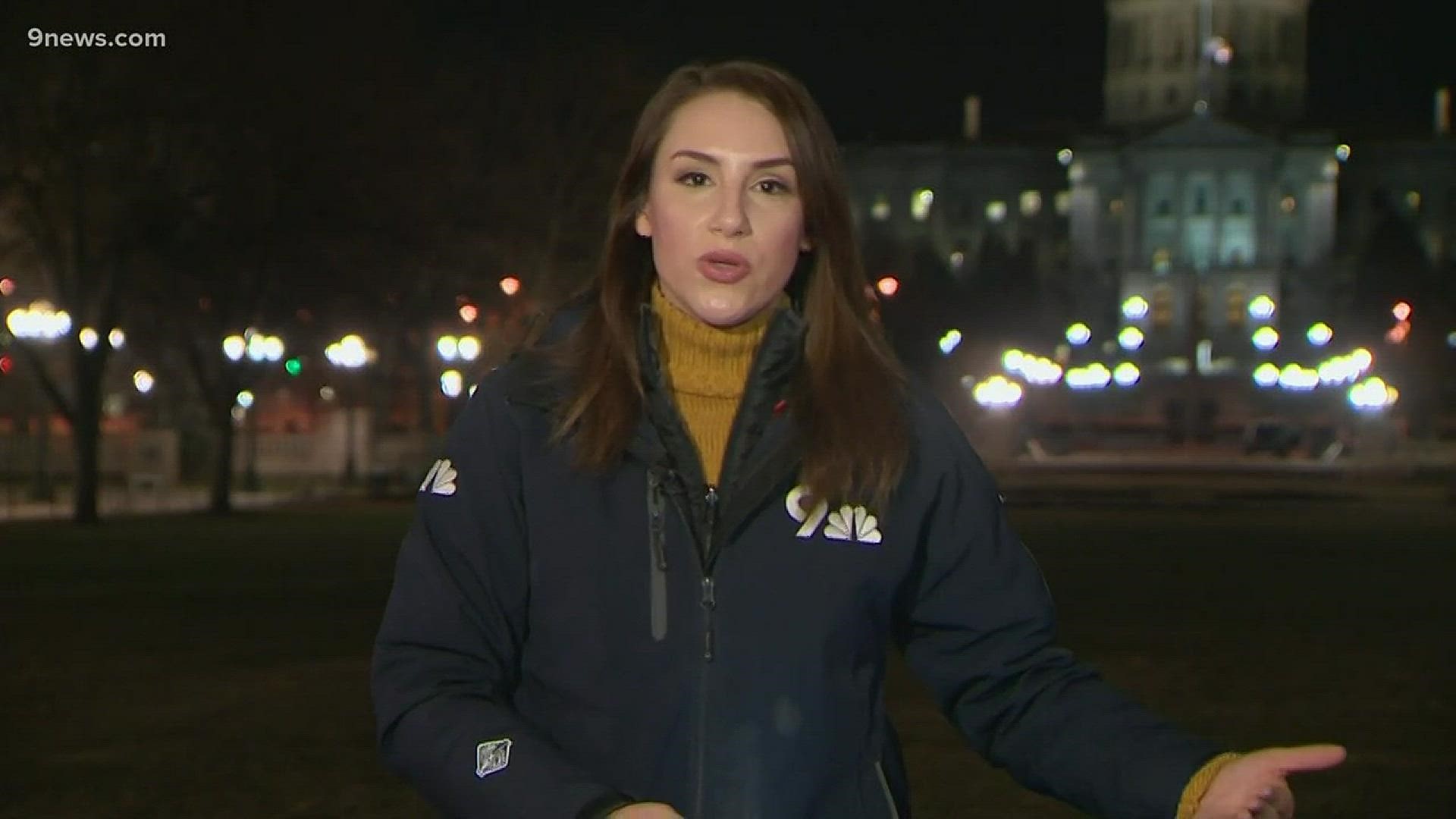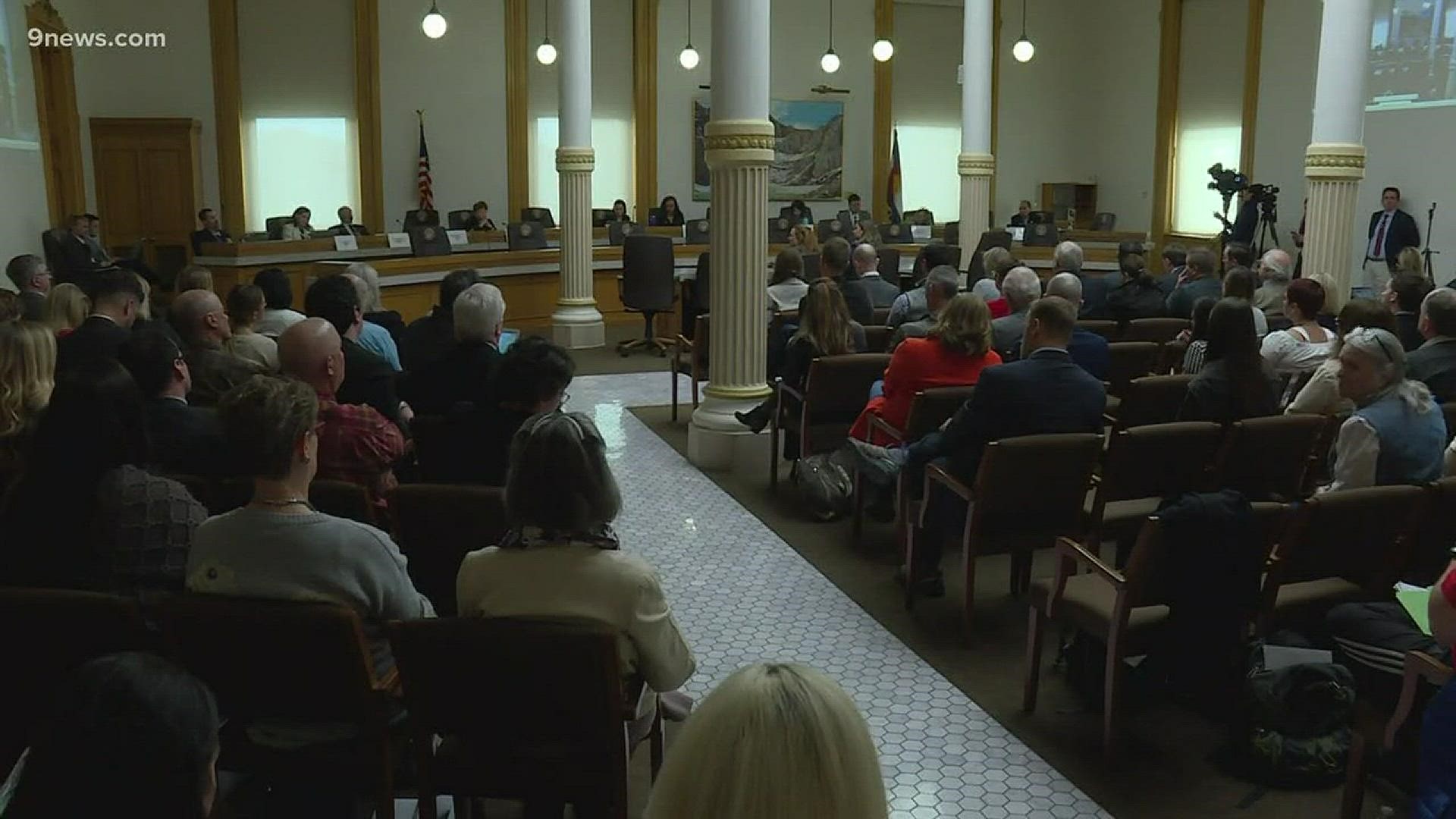DENVER — The House Energy and Environment Committee approved Senate Bill 181, the oil and gas reform package, in a 7-4 vote early Tuesday morning after another long night at the Colorado State Capitol.
The bill already passed the state Senate and had its first hearing in the House on Monday which began at 1:30 p.m. and didn't wrap up until early Tuesday. The bill now goes to the House Finance Committee for consideration.
RELATED: The proposed changes to Colorado oil and gas regulations: Regulate wells, protect public health
The bill would make several changes to how the oil and gas industry operates in Colorado.
It would give local governments control over where oil and gas operations could set up. It also would change the makeup of the Colorado Oil and Gas Conservation Commission - the state regulators - to include fewer members from the oil and gas industry and add one with an expertise in public health. The commission would also have to start making decisions considering public health and safety first.
This bill started in the Senate, and its first committee hearing lasted nearly 12 hours.
The vote to pass it out of that committee happened almost at 2 a.m., after hundreds had signed up to debate for and against the legislation.
Local control of oil and gas operations were one of Gov. Jared Polis' (D-Colorado) promises during the campaign and in his state of the state address.
"It’s time for us to take meaningful action to address the conflicts between oil and gas drilling operations and the neighborhoods they impact, and to make sure that all of our communities have clean air and water," Polis said during his state of the state on Jan. 10.
A political ad against Senate Bill 181 is currently airing, funded by Colorado Petroleum Council. 9NEWS put the claims to a Truth Test on Friday.
Proponents of the bill believe it will give communities more say in what happens in their neighborhoods.
“This bill is simply to ensure we protect health and safety and welfare when it comes to oil and gas,” said Speaker of the House, Representative KC Becker (D-District 13), who is also a sponsor of the bill.
“We are not intending to shut down the industry. This bill is not a job killer. The instances that this bill will impact any permit are very limited,” she continued.
“But this bill is still necessary and important to create a modernized framework for oil and gas development in Colorado. Ultimately, the back stop of this entire bill is the need to put health and safety in oil and gas permitting first.”
Opponents of the bill suggest it amounts to a ban on the oil and gas industry, and that whatever local governments decide, state lawmakers could enact stricter regulations.
“The patchwork of regulations that will exist throughout the state of Colorado will depress future energy investment in Colorado and will send a strong signal to all: That Colorado is closed for business,” said Chris McGowne, of the Colorado Petroleum Council.
Several bills debated this session have had large numbers of people testify, with testimony often continuing late into the night.
The job of managing the crowds and maintaining decorum falls to the Sergeant-at-Arms team in the House and Senate.
“We have to get everybody in and out in an orderly manner,” said Chief Sergeant-at-Arms for the Colorado House of Representatives, Jon Judson.
“Safety is our prime concern.”
Judson and his colleagues have had several nights at work this session, but he says the team has come to expect a few bills will take longer to discuss.
“We’re used to it, There’s generally only four to five times a year that we have a late night. The latest we’ve ever had, the record was until 5:30 in the morning.”
And while the people testifying may have strong opinions on the issue before lawmakers, the Sergeants-at-Arms are a non-partisan staff and not allowed to weigh in on issues at the capitol.
“We can’t pick sides,” Judson said. “If we get caught picking a side, we will be terminated that day. I like that, I think that’s a good thing .”
Previous bills have had testimony during committee hearings last into the night including:
- Red flag legislation
- Comprehensive sex education
- National popular vote
The red flag legislation would allow law enforcement to seize the weapons from someone deemed an extreme risk.
Comprehensive sex education would add the teaching of consent to the requirements of sex ed classes.
The national popular vote bill, which was signed into law by Polis on Friday, would award Colorado's nine electoral college votes to the presidential candidate who receives the most votes nationwide, and not necessarily the most votes in Colorado. This would not take effect until states totaling 270 electoral college votes agree to the compact. So far, with Colorado's inclusion, states (and Washington D.C.) totaling 181 electoral college votes have agreed.
SUGGESTED VIDEOS | Next with Kyle Clark


